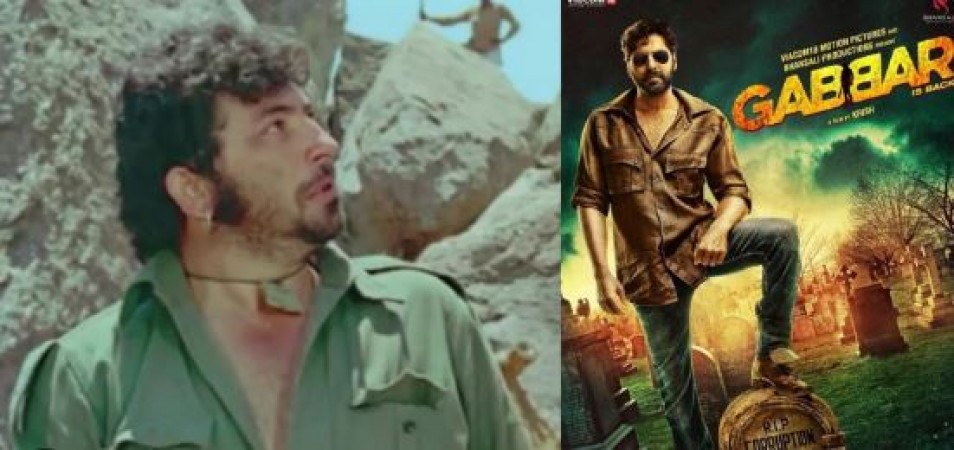
Bollywood, the biggest film industry on earth, has a long tradition of honoring its illustrious forebears. One such instance, which appeals to both moviegoers and fans, is the use of the recognizable score from the cult classic "Sholay" during a few of the Akshay Kumar-centric scenes. This original decision pays homage to the classic appeal of Ramesh Sippy's blockbuster from 1975 while also bringing back fond memories. A clever way to pay tribute to the unforgettable villain is the modification of Gabbar Singh's well-known dialogues from "Sholay" in these scenes. In this article, we'll examine the specifics of this distinctive cinematic fusion, examining its importance and the effect it has had on audiences.
The name "Sholay" has become ingrained in Indian film history. This iconic movie, which was directed by Ramesh Sippy, is a testament to Bollywood's unfailingly high caliber of cinema. Even decades after its initial release, audiences are still enthralled by the film's compelling storyline, enduring characters, and memorable dialogue.
The music, which was created by R.D. Burman, is among "Sholay"'s most enduring features. Moviegoers have a special place in their hearts for R.D. Burman's background score to the movie. One of its most distinctive features is the menacing theme song that plays whenever Gabbar Singh, played by the illustrious Amjad Khan, appears. Fans of Indian cinema are familiar with this eerie yet compelling music as it has come to represent the character.
Bollywood's "Khiladi" of acting, Akshay Kumar, is renowned for his range as a performer. Despite being best known for his comedic roles and action movies, he has also taken on projects that honor the history of the business. Akshay Kumar was in one of these movies when he was in a scene that was similar to Gabbar Singh's entrance in "Sholay."
The iconic background music from "Sholay" has been specifically chosen by directors and composers to be played when Akshay Kumar's character enters the scene in a big way in several of the actor's movies. This clever choice accomplishes a number of objectives.
It serves as a tribute to Indian cinema's lengthy history in the first place. Since "Sholay" is regarded as a masterpiece, filmmakers honor the heyday of the business by using its music. It serves as a way of recognizing the impact that the iconic movie has had on Bollywood as a whole.
Second, it immediately strikes up an emotional connection with the audience. Viewers who grew up watching "Sholay" and still cherish its moments can feel excitement and nostalgia from the music's simplest notes. The audience's involvement with the movie is increased by this emotional resonance.
Additionally, the use of this well-known soundtrack heightens the drama and suspense of Akshay Kumar's entrance scenes. Similar to how it did for Gabbar Singh, the music raises anxiety and engenders a sense of dread as it gets the audience ready for an important development in the plot. It enhances the impact of the character's entrance and enhances the cinematic experience as a whole.
Along with the music, some directors have gone a step further by altering the well-known dialogue from Gabbar Singh and having Akshay Kumar deliver it in his own distinctive manner. This alteration is a deft way to pay homage to the iconic character while giving it a modern spin.
For instance, Akshay Kumar has adapted and delivered Gabbar Singh's famous line, "Kitne aadmi the?", in a number of movies. This alteration not only brings back fond memories and a sense of humor, but it also demonstrates the actor's skill at updating timeless scenes for a contemporary audience.
The fact that the soundtrack from "Sholay" is used as the background music and that Gabbar Singh's dialogue has been changed in scenes with Akshay Kumar is proof of the genre's continuing influence on the business. It demonstrates the esteem and admiration that actors and filmmakers have for the legendary figures who helped to establish modern cinema.
In addition to enhancing the cinematic experience, this imaginative blending of the past and the present also acts as a link between different moviegoer generations. While bringing a sense of familiarity and nostalgia to devoted followers, it enables new audiences to connect with the cultural heritage of Indian cinema.
In the end, this tribute to "Sholay" and Gabbar Singh through music and dialogue emphasizes the timeless nature of some Bollywood components and reaffirms their relevance in the continuously developing field of Indian cinema. The legacy of movies like "Sholay" will endure in Bollywood's heart and soul as long as there are filmmakers and performers who value the classics.
The "Crime Patrol" Stars in 'Gabbar is Back'